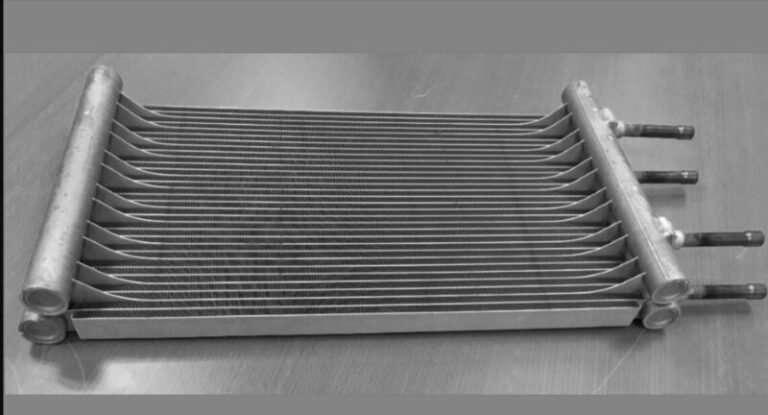More and more people in Delhi are complaining of difficulty seeing near or far, primarily due to cataract. Cataract surgery is a quick and fast solution for people with blurry vision. Read this article to know the 7 things you should know about in case you are considering surgery for blurry vision caused due to cataract.
1. What is cataract surgery?
Cataract surgery is the surgical procedure to remove the clouded natural lens inside the eye and replace it with a clear artificial lens. Traditionally, this was a complicated procedure in which people had to spend days at the hospital for recovery. With the advancement of technology, this is now performed under the influence of local anesthesia and on an outpatient basis.
The United States of Food and Drugs Administration (USFDA) has deemed the usage of intraocular lenses as ‘safe and effective’. There is no rush to undergo the surgery but doctors claim that earlier treatment can guarantee better vision.
2. Who should consider cataract surgery?
People with early signs of cataract are said to benefit the most after cataract surgery. The ideal candidate for cataract surgery includes the following-
- Generally belonging to the age bracket of 30-40 years
- Not suffering from any medical condition
- Suffering from significant vision loss due to cataract
- Suffering from any other eye condition which remains undiagnosed due to cataract
- What are the different types of cataract surgery?
4. What are the different types of lenses for cataract surgery?
By now you have understood that during the cataract surgery, the doctor removes the lens that has become cloudy and implants a new lens as its replacement. The lens implanted inside the eye is known as Intraocular lenses (IOLs).
Here are the type of lenses that are available for cataract surgery-
- Anterior Chamber Lenses- Not the first choice of several patients, this type of lens is placed on top of the iris and not the native location of the natural lens of the eye.
- Posterior Chamber Lenses- More preferable in nature than the previous ones, this type of lens is placed as a replacement of the natural lens of the eye. This is placed in the physical position of the natural lens.
- Monofocal lenses- ‘Mono’ means one which means this type of lens can only clear one type of blurry vision- far or near. Power can be adjusted on this type of lens so that the patient doesn’t have to wear any glasses once the operation is complete.
- Multifocal lenses- As the name suggests, this type of lens can make both near and distance vision clearer. After the surgery, generally, patients need NOT to wear any glasses as they can see far and near clearly. However, there can be some decrease in contrast and there can be glare.
- Toric lenses- Toric lenses are recommended to cure spherical as well as a cylindrical component of the eye. Doctors recommend this type of lens when a patient is suffering from a pre-existing cylinder or astigmatism inside the eye.
5. How to choose a lens for cataract surgery?
There are several aspects to factor in while choosing the lens for cataract surgery. This is a vital thing to consider before cataract surgery as the right lens can only improve your vision and eye functioning. Keep the following points in mind while choosing the lens-
- Experience and skills of the surgeon- There are a lot of options now available as far as the type of lenses is concerned. The novel type of lenses is relatively newer in the market hence, not a lot of ophthalmologists are specialized for the surgery. In case you choose a specialty lens, consider the number of implantation procedures the doctor has completed successfully. Fortunately, you’ll be able to find highly-experienced doctors in several eye clinics in Delhi such as Pristyn Care.
- Suffering from certain medical conditions- In case you are suffering from another eye condition such as corneal problems, glaucoma, macular degeneration due to age in addition to a cataract, then you are not a good fit for specific lenses such as a multifocal lens.
- The lifestyle you are maintaining- The lifestyle you follow that includes your work, daily chores is another factor to consider. Let’s understand this with an example. For instance, if you have to do lots of work up close, then a multifocal lens may be good for you. In case you want to read and see at a distance while driving, monofocal lens implantation may be an appropriate choice.
- Cost- Last, cost is a major deciding factor while choosing the lens. Try to find a lens that fits within your budget. The premium lenses that offer clearer vision are often expensive than the traditional IOLs. Some insurance companies don’t provide coverage for the cost of premium lenses. Hence, make a choice accordingly.
Remember, even if you can make a choice for the type of lens used for the surgery, the doctor is the right person who can guide you. Consult with the doctor and let him/her know your personal thoughts on the same. After a thorough evaluation, the doctor can let you know the benefits and potential risks associated with each type of lens.
6. What are the side effects and complications of cataract surgery?
You must be wondering what happens if you don’t take proper precautions prior to the cataract surgery? In such cases, the possibility of the side effects associated with cataract surgery increases manifold. So far, the following side-effects and complications have been reported-
- Infection inside the eye
- Bleeding inside the eye
- Swelling of the retina
- Continuation of blurred vision
- Complete vision loss
- The appearance of halos, dark shadows and glare
- The detachment of the retina
- Chronic pain that doesn’t come down even with pain-killers
- The intraocular lens (IOL) moves out from its original place
7. How to recover after cataract surgery?
The eye is one of the most sensitive organs of the body. Therefore, ophthalmologists ask patients to be extremely careful after the cataract surgery. Here are a few do’s and don’ts to keep in mind for a few days and weeks after the surgery-
- Put the eye drops timely. If possible, prepare a timetable to ensure that you don’t skin on any dosage of eye drops after the surgery.
- Wear sunglasses after the surgery to protect the eyes from extreme heat, dust or light.
- Do not put pressure on the eyes in any way. Therefore, speak to the doctor about the amount of exercise you can do safely.
- While sleeping, cover the eye with an eye patch that works as a shield.
- Do not put any water or soap by mistake inside the eye.
- Avoid lifting heavy objects or activities such as jogging that can dislodge the newly implanted lens.
Conclusion
Due to the natural phenomenon of aging, cataract is a common problem that develops. Due to continuous wear and tear over the years, the lens can become cloudy, thicker, and less resilient. The color becomes duller and seeing at night becomes difficult. In some cases, it can be catastrophic. People should consider surgery in case the above symptoms resonate with them. Consult with an ophthalmologist today for early detection and treatment.













